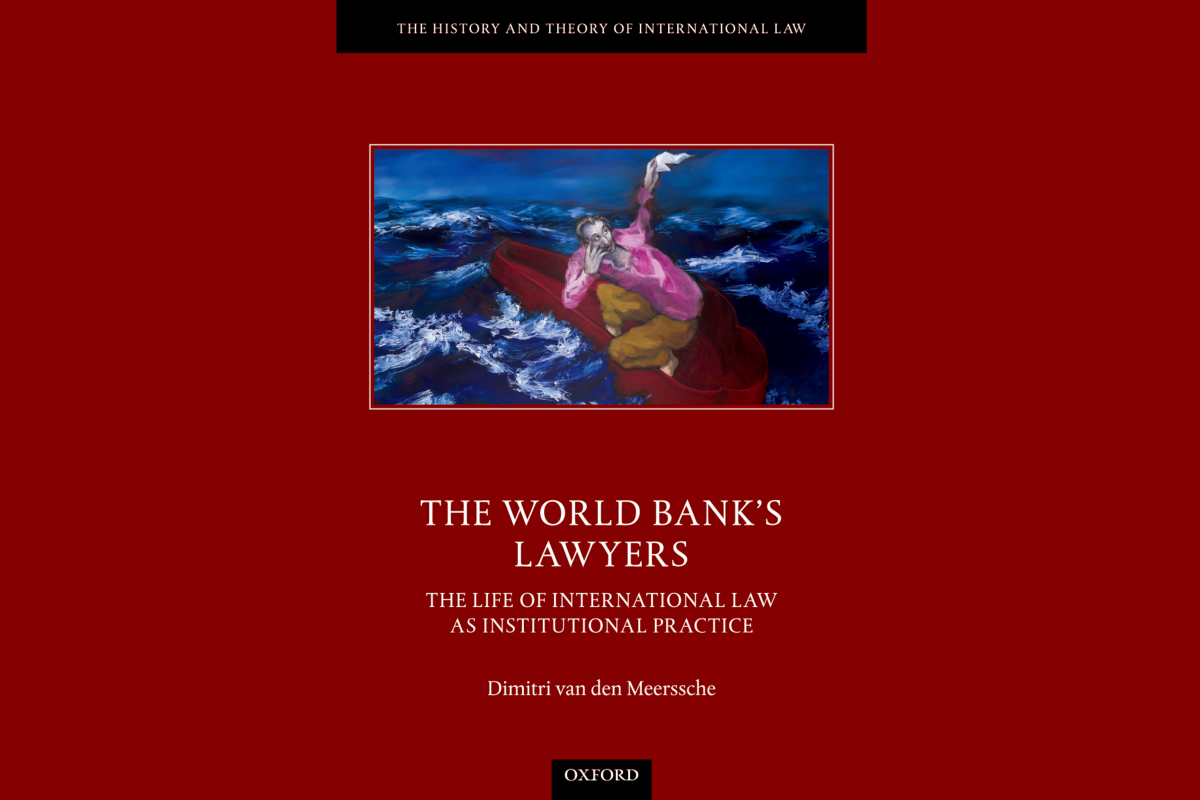Ever Shifting, Ever Changing
Introducing the Book Review Symposium on The World Bank’s Lawyers The Life of International Law and Institutional Practice
As international scholars, we have been trained to accept a certain role law occupies in international and global settings, and have adopted a very peculiar perspective on how to study international law’s mode of existence. Yet, more and more frequently, we may arrive at a point at which we realise that some legal problems may call for a reconsideration of the kinds of questions we are accustomed to asking, to whom these questions are addressed, and, further, for a re-evaluation of certainties and uncertainties and the tools we mobilise to find answers to these questions.
Dimitri Van Den Meerssche’s recently published book “The World Bank’s Lawyers – The Life of International Law and Institutional Practice” shows us how an approach which takes these reconsiderations and re-evaluations seriously could look like. Adopting a socio-legal account, drawing on archival material as well as interviews, he tells the story of the evolving institutional life of international law and lawyering in the World Bank’s legal department between the early 1980s and 2016.
Throughout this week, you will be able to witness a lively debate about the life of international organisations, lawyering, method, as well as old and new blind spots of international legal scholarship between a highly interesting group of scholars engaging with Dimitri Van Den Meerssche’s “The World Bank’s Lawyers – The Life of International Law and Institutional Practice”. The symposium will not only carry forward the conversation started by Negar Mansouri and Florenz Volkaert during a book launch event organised by the ESIL Interest Groups on the History of International Law and on International Organizations last week (see recording here), but adds novel and different perspectives. As we would like to see the conversation to be continued beyond this symposium and want to encourage a broader audience to engage with “The World Bank’s Lawyers”, the Völkerrechtsblog is especially delighted to announce that chapter two and seven of the book are available in Open Access and will remain so until 15 February 2023 (courtesy of Oxford University Press).
The symposium will be kicked-off by Isobel Roele showing how the book is productively unsettling our long-held certainty that ubi societas, ibi ius. This post will be followed by Guy Fiti Sinclair asking us to consider “A New Map of (International Law’s) Empire?” Michael Riegner continues the conversation by arguing that while peeking “under the radar” of international law, Van Den Meerssche’s book uncovers important substantive counternarratives to widely shared macro-accounts of international law’s evolution, the obtained high-resolution image necessarily remains limited. Negar Mansouri shows how approaching the story “The World Bank’s Lawyers” is telling, with sensibilities to rising corporate liberalism outside the World Bank, may prove productive. And finally, Gail Lythgoe gives insights into the role of method in narrating nonlinear systems and ambiguous concepts, before the symposium will be concluded with a response by Dimitri Van Den Meerssche himself.
With this brief preview, we wish all readers an inspiring read!
Dear reviewers, the floor is yours …

Anna ist Doktorandin an der Humboldt-Universität in Berlin und Stipendiatin der Heinrich-Böll-Stiftung. Derzeit arbeitet sie als wissenschaftliche Mitarbeiterin am Max-Planck-Institut für ausländisches öffentliches Recht und Völkerrecht im Forschungsprojekt humanet3, das in Berlin am Zentrum für Mensch und Maschine des Max-Planck-Instituts für Bildungsforschung angesiedelt ist.
